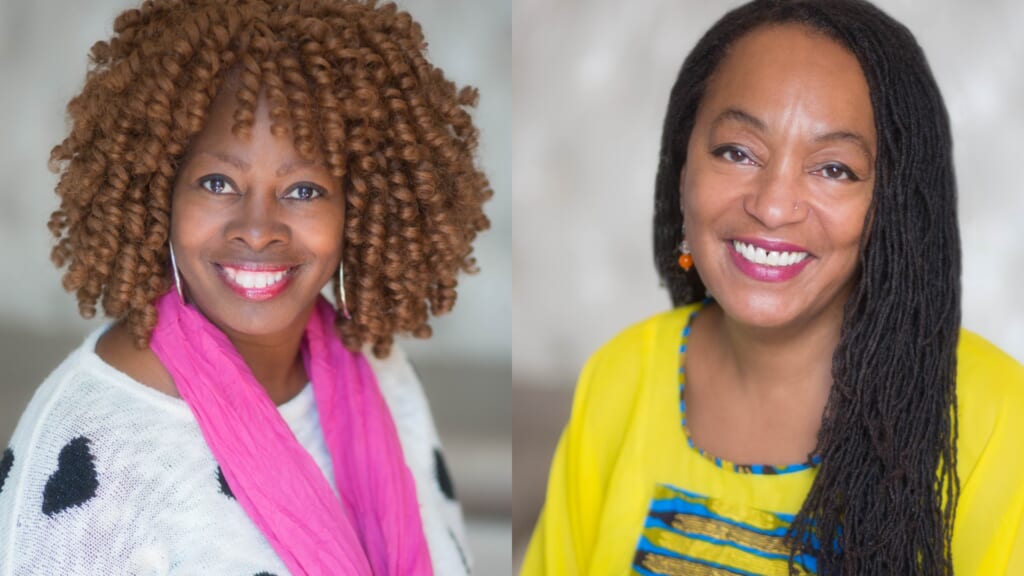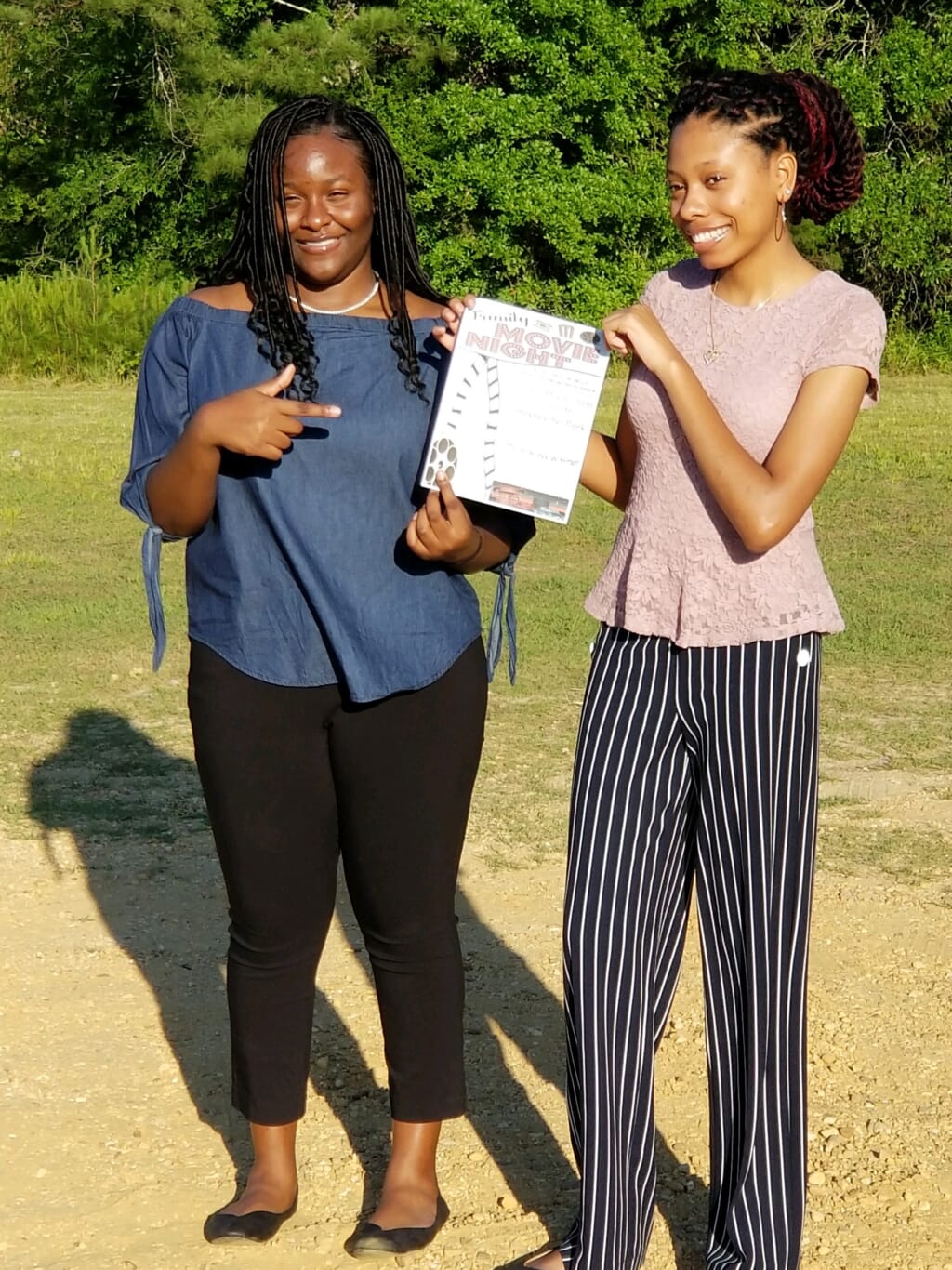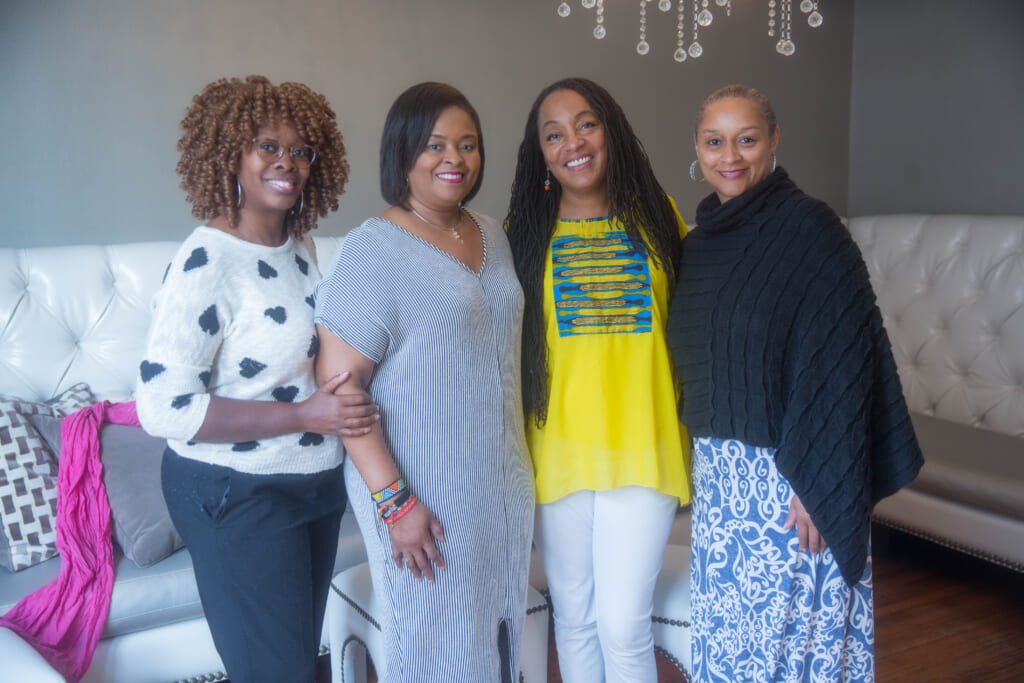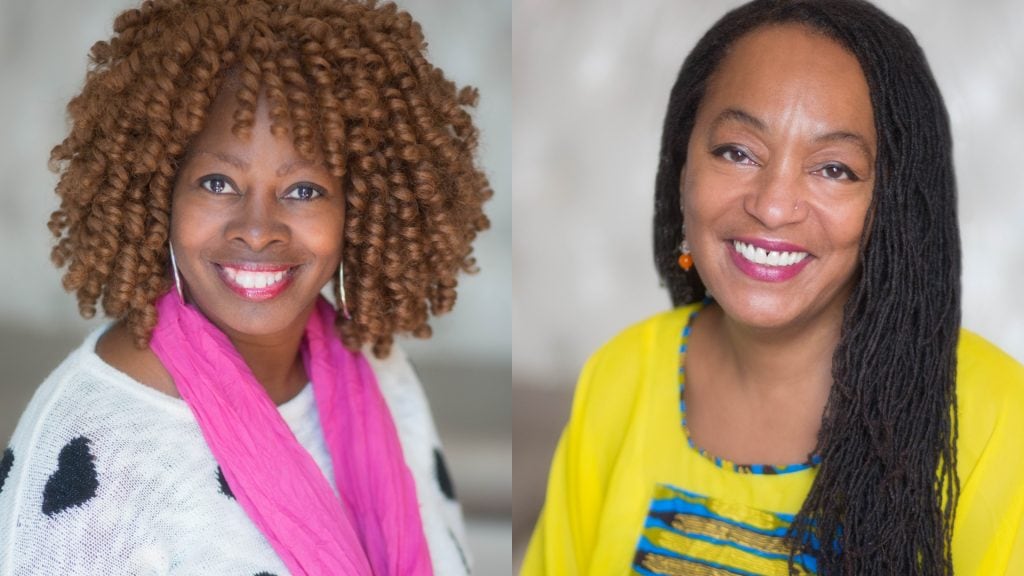Black woman lead initiative to raise $100M for Black girls and women in the South
The Southern Black Girls and Women’s Consortium aims to raise $100 million in the next 10 years.
You already know about LaTosha Brown’s work as the co-founder of Black Voters Matter, the Black Voters Matter Fund and Black Voters Matter Capacity Building Institute. The Alabama-born, Georgia-based activist is one of the anchors of the effort that turned Georgia blue this past election cycle, helping the Democrats gain a slim one-vote majority in the Senate with Vice President Kamala Harris‘ tie-breaking vote.
Read More: From abolitionism to women’s suffrage, Black women are the pioneers of movements
Community organizer, cultural activist and non-profit executive Margo Miller is another accomplished Black woman. The Tennessee native is the executive director of the Appalachian Community Fund, a non-profit seeking to counter poverty and improve the lives of residents of Central Appalachia, which includes East Tennessee, West Virginia, Eastern Kentucky, Southwest Virginia and all of West Virginia.

Given all that they already do, you’d think that their plates would be a little too full to do much more. But Brown and Miller want to empower others to continue in their footsteps. The two are part of the Southern Black Girls and Women Consortium, along with Felecia Lucky, president of the Black Belt Community Foundation, and Alice Jenkins, executive director of the Fund for Southern Communities.
The consortium has given itself the ambitious task of raising $100 million for Black women and girls over the next decade. They’ve already raised $10 million of that total and are in the progress of raising more. Some of those funds have already been distributed to community organizations in the form of grants. In just one example, two young women in Lowndes County, Georgia used a $250 grant to fund a drive-in screening of Black Panther to provide a safe entertainment alternative for their community as the pandemic continued.
On Wednesday, March 31, the consortium will host a chat via their Twitter account @Blackgirlsdream from 1:20 p.m. – 2 p.m. EST to discuss the state of Black women and girls. It may be the last day of Women’s History Month, but it’s always the right time to support women’s empowerment.
theGrio talked to Brown and Miller to find out more about the initiative and how you can support their efforts. (Answers have been edited for length and clarity.)
theGrio: So tell me, first of all, exactly what is the Southern Black Girls and Women’s Consortium? How did it get started, and what are its goals?
LaTosha Brown: I had a vision, actually. I’ve worked as an organizer for a number of years, and I’ve also worked in philanthropy for more than 15 years. There was a report that came out from the Southern Rural Black Women, and it was called Unequal Lives.
And in the report, it talks about how less than 1% of philanthropic dollars out of the billions of dollars that come to the South are going to Black women and girls.
And initially, what I want to do is I wanted to call philanthropy out. Like, why are you not supporting Black women and girls, particularly in the South, when we are basically carrying this region on our backs? Well, one day, I was literally in the shower, and I don’t have any other way to say it, but the truth, literally, spirit spoke to me. It was essentially, we could continue to try to get traditional philanthropy to shift, or we could lead the way. I got this vision of creating this network, the Southern Black Girls Consortium, and it was so strong that I actually had to jump out the shower.
What do Black girls and women need to fund most in your experience? Does the South in particular have more Black girls and women that need financial assistance? If so, why is that?
Margo Miller: Black women are enrolled in and graduating from school in the highest percentage across all racial and gender lines, yet we still make far less money than our white counterparts. Education is critical, but degrees and financial literacy alone have not closed the wealth gap. The same is true of college-degreed Black women and health disparities. Despite this, philanthropic investment steered toward Black women and girls in the South is still less than 1%. We have to be innovative and intentional about attacking the complex challenges facing us — and we have to listen to the under-represented to develop solutions.

Why the focus exclusively on the South? Don’t Black girls and women need help everywhere?
LaTosha Brown: Because the majority of Black people live in the South. In addition, what the South has been is the place that has rooted white patriarchy supremacy. We see those policies that have been harmful and traumatic to our community and to Black girls and women. It was Southern Black people that were literally enslaved and were in the slave states that generated the foundational wealth of this country. [But now] we live in some of the poorest conditions. There has been a marginalization of us in our own communities.

What is the ultimate mission for this fund — to fund girls’ dreams in what way? How do you measure the success for this initiative?
Margo Miller: The vision contains our desire to fund the needs that Southern girls have identified for themselves. We designed listening sessions to learn Black girls’ perceptions about themselves, their needs, their dreams, and the resources they need. This information was critical to design funding approaches that ensure equitable distribution of funds to organizations serving Black girls throughout the Southeast and to identify funding priorities that address the current needs of Black girls, while having a long-term impact on their development and their lives.
Read More: Thanks to Vice President Kamala Harris, the power of women will never be the same
LaTosha hopes [this] work will result in a shift in how Black girls in the South see themselves. Not as victims, but as victors. If we do nothing else but that, then we would’ve been highly, highly successful.
What is the call to action? What do you want people to do to assist this effort that you have put together with the help of these other organizations and these dynamic women?
LaTosha Brown: Ultimately, we want this to be a fund that’s been invested in by individuals, not just foundations, but our community. We’re in the business of supporting groups that have a track record of distributing resources that’s fair and effective. We want to engage Black women and Black girls. We see this as a collective effort.
Have you subscribed to theGrio’s new podcast, “Dear Culture?” Download our newest episodes now!
TheGrio is now on Apple TV, Amazon Fire and Roku. Download theGrio today!
The post Black woman lead initiative to raise $100M for Black girls and women in the South appeared first on TheGrio.

